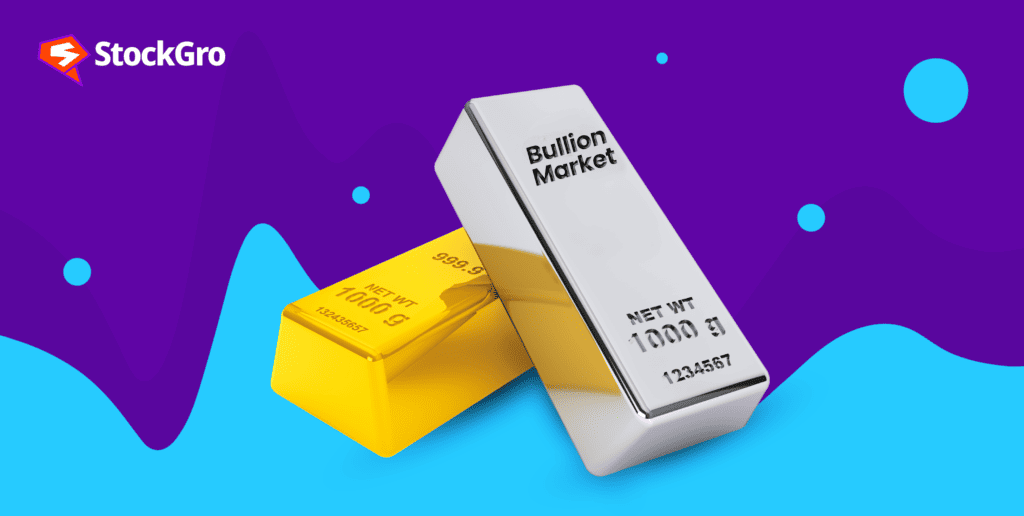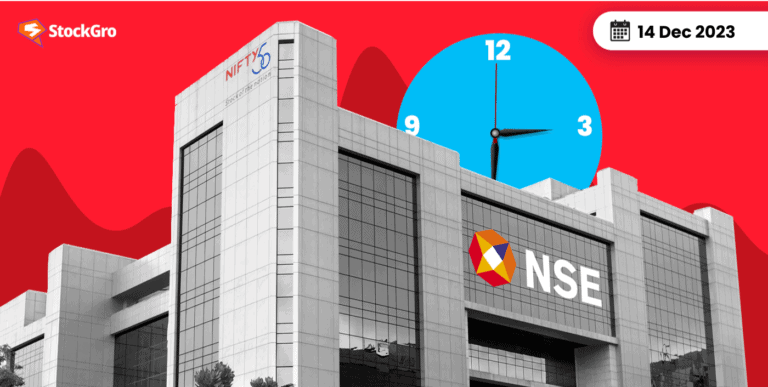
Bullion markets are trading markets for gold, silver, and their derivatives. There are several bullion markets around the world, with the London Bullion Market considered the primary one. One of the biggest features of bullion markets is that they are open 24 hours a day, allowing for extended periods and opportunities for trading. They’re also very global, which means that most transactions take place online.
In this article, we’re going to explore how these markets function, how they’re different from traditional stock markets, and how you can get started with them.
Understanding the bullion market
Gold and silver are not only versatile metals in themselves, but they’re also globally-recognised precious metals. The metals’ industrial applications incentivise its trading worldwide, and their demand and supply determine prices in bullion markets. Most bullion in world markets is traded over-the-counter.
Gold is also popular because it’s usually used as a hedge against riskier securities, or as a safe haven against inflation. Sometimes, it can also be considered legal tender, because world governments often hold gold in reserves. This is because unlike money, which is theoretically infinite, gold is not; its supply is controlled and can’t be manipulated by government policy.
You may also like: OTC market – A beginner’s guide to decentralized trading
Why bullion?
If you want to trade bullion in India, you’re going to need one of the multiple commodity exchanges that operate in the country. Some of them are the Multi-Commodity Exchange of India Ltd., the National Commodity and Derivatives Exchange Limited (NCDEX), etc.
There are other ways too. Banks in India offer ETFs in gold, silver, or any combination of the two that let you benefit from the price movement without having to actually own the asset. Most times, these options are more attractive to investors since they offer more flexibility.
Gold and silver, even though they’re physical commodities, are not traded physically due to obvious reasons. One of them is practicality; as a trader, you can deal in unreasonably high or ridiculously low proportions of gold depending on how much capital you have, and no matter what the weight is, it can be instantly sold and bought. This is practically impossible when dealing with physical gold and silver.
Also Read: Build a better portfolio: How to invest in commodities for the long run
Types of bullion markets
Major bullion markets around the world are New York, London, Tokyo, and Zurich. London is the primary bullion market, it’s OTC, and is open 24 hours a day. Not only can people trade gold and silver on spot prices, they can also buy derivatives like forwards and options.
Most major bullion markets, like the London Bullion Market, have established standards for production quality of metals transacted and settled within the market.
If you want to be a member of the London Bullion Market, you need to pay a membership fee, which ranges anywhere from GBP 6,700 (₹7 lakh approximately) to GBP 17,500 (₹18.4 lakh approximately) annually for membership.
Investing in bullion
Bullion can be a great tool for institutions to diversify their portfolios with a commodity that has a negative correlation with equity markets – which means that when stocks go down, bullion goes up and vice versa.
However, unless you’re a very systematic investor, gold is not the most attractive asset class in the market with respect to absolute returns. However, here are some other reasons you might want to invest in gold:
- Protecting your money against inflation: High inflationary environments might corrode the value of your money, decreasing your absolute purchasing power. However, since gold is a physical asset that holds up its value no matter what, it acts as a hedge.
- Gold rises during an economic recession: Over time, patterns have emerged which have shown with considerable confidence that gold is considered to be a “safe haven” asset, meaning that when other assets aren’t doing well in the market, investor capital tends to flow to gold, which increases its value.
- Cultural and historical significance: In Indian culture, gold has cultural and historical significance, which explains why India invests so heavily in the asset.
- Ownership of tangible assets: Gold, unlike stocks, ETFs, and mutual fund tokens, is something people can touch and feel. The tangible and versatile nature of bullion, which can be stored, converted into jewellery, or passed down through generations is attractive to investors.
Also Read: What is a commodity? A short guide before you trade
Bullion Coins: What They Are and How They Work
Bullion coins are precious metal coins made primarily of gold, silver, or platinum. Unlike regular currency coins used for daily transactions, bullion coins derive their value from their metal content, not face value.
Popular examples include:
- Gold Sovereigns (UK)
- American Eagles (USA)
- Canadian Maple Leafs (Canada)
These coins are minted by government or accredited agencies and are often used by investors to hedge against inflation, store wealth, or diversify their portfolios. They’re easy to trade, store, and liquidate — making them a popular choice for both small and large investors.
Understanding Gold Bar Integrity and Its Importance
Gold bars — or bullion bars — come in various sizes and purities. But how do you trust what’s inside? That’s where integrity comes in.
Gold bar integrity refers to the authenticity, purity, and weight verification of the bar. Here’s why it’s important:
- Prevents fraud (counterfeit bars are a real risk)
- Ensures fair pricing (based on accurate weight and karat)
- Enhances resale value (bars from certified refineries fetch better market prices)
Always look for:
- Refinery stamp (like MMTC-PAMP, Valcambi, etc.)
- Serial number
- Assay certificate or tamper-proof packaging
This guarantees that you’re not just holding a shiny object — you’re holding verified value.
Conclusion
In conclusion, the bullion market serves as a hub for trading precious metals like gold and silver. This marketplace provides investors with a platform to buy and sell physical commodities, offering a means of diversification and a store of value.
FAQ’s
Bullion prices are high because they are linked to international spot prices of precious metals like gold and silver, which are limited in supply and have high global demand. Additionally, factors like inflation, currency depreciation, and geopolitical tensions drive prices higher as investors flock to bullion as a safe haven.
In India, you can trade bullion through:
Jewellers and Bullion dealers
MCX (Multi Commodity Exchange) for gold/silver futures
Gold ETFs and Sovereign Gold Bonds for digital exposure Make sure you’re buying from certified sources and get a bill to avoid purity or legal issues.
Yes — bullion is considered a safe haven asset. It doesn’t offer regular income like stocks or bonds, but it preserves wealth during market volatility, economic downturns, or inflation spikes. Gold especially has shown a steady appreciation over decades.
The price of 1 bullion coin or bar depends on:
Spot price of gold/silver on international markets
Weight (e.g., 1 gram, 10 grams, 1 oz)
Purity (typically 99.5%+ for bullion)
Making charges or premium over spot (varies by dealer, mint, packaging)
For example, a 10g gold coin may be priced at ₹65,000+ depending on market conditions and premium charges.

